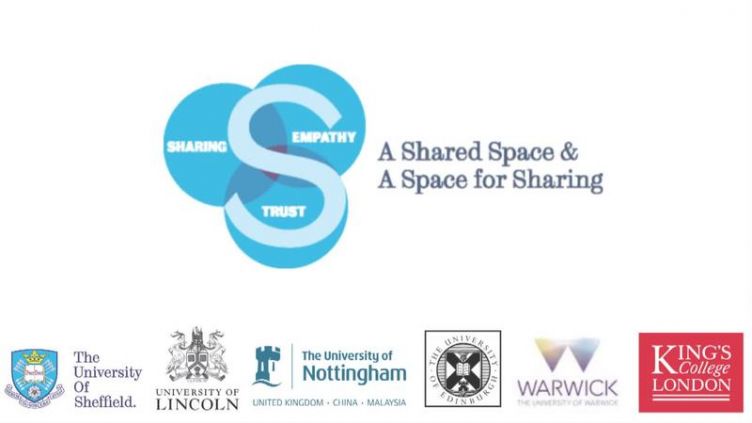Social media data sets
Analysis of large data sets and creation of suitable subsets
Background
The overall aim of this research area was to create an understanding of empathy and trust online by examining large datasets of online expressions during extreme situations.
We asked the following questions:
- How different kinds of entities, from the Government and Non-Governmental Organisations to private enterprises and individuals, employ empathy and trust for effective communications in extreme situations?
- What is the role of empathy and trust in rapidly self-organising communities of support when there is sudden onset of an emergency situation?
- (How) does empathy help engender trust and likewise, (how) does trust create the right conditions for empathy to arise?
To examine these questions, we will perform large-scale data analysis alongside the qualitative studies in the disasters and humanitarian crises and emotional distress research areas.
Key findings
The aim of the research was to focus on using digital and quantitative methods to examine empathy and trust for users in extremis, in public and private aspects of their online lives.
For the public lives aspect, we focused on political crises such as the recent conflict between Ukraine and Russia (Karamshuk et al., 2016). For the private life aspect, we focused on users experiencing suicidal ideation and/or commenting on suicides of public figures (Karamshuk et al., 2017).
We also explored users who may be in potentially vulnerable or extremis situations on adult online social networks (Tyson et al. 2016; Magdy et al., 2017; Tyson et al., 2015). Our work was mainly in collaboration with other social scientists, in line with the transdisciplinary aim of the wider project (Karamshuk et al., 2017).
Our key findings are as follows:
- We developed tools and new methodologies that can be used to detect bias in news and social media. We used this to demonstrate biased reporting in the Russian media, as well as in Ukrainian news media (Karamshuk et al., 2016). We have since applied aspects of these techniques to other settings, including medical discussion forums (ongoing).
- We developed tools and new methodologies that can be used to scale up the manual coding process used in social science using a combination of machine learning and crowdsourcing (Karamshuk et al., 2017). We examined how conversations about suicidal ideation evolves on Twitter (Karamshuk et al., 2016), and identified a clear difference between such conversations about personal crises, which evolve in a bilateral manner, and conversations about public crises, which involves many actors, and tends to change topics as the conversation evolves.
- The above findings suggest that in extremis situations, it is important to be able to trust the source of a content item, and the power they may wield over a platform, through affecting overall popularity and engagement with fake and virality. To this end, we identified patterns of how users engage with popular and unpopular content (Joglekar et al., 2017), as well as how online personae of the same individuals might vary (Zhong et al., 2017), and developed a novel way to transfer trust from one online platform to another (Venkatadri et al., 2016).
- Finally, we studied an interesting new form of social network used for “adult” videos etc. (Tyson et al., 2015), and showed that in such platforms, where users can be vulnerable to scams (e.g., catfishing, or adopting fake online persona to deceive), there is likely a large scale of deception going on, especially about declared genders (Magdy et al., 2017)
Publications
Joglekar, S., Sastry, N., & Redi, M. (2017). Like at First Sight: Understanding User Engagement with the World of Microvideos. In International Conference on Social Informatics (pp. 237–256). Springer, Cham. https://doi.org/10.1007/978-3-319-67217-5_15
Karamshuk, D., Lokot, T., Pryymak, O., & Sastry, N. (2016). Identifying Partisan Slant in News Articles and Twitter During Political Crises. In International Conference on Social Informatics (pp. 257–272). Springer, Cham. https://doi.org/10.1007/978-3-319-47880-7_16
Karamshuk, D., Pupavac, M., Shaw, F., Brownlie, J., Pupavac, V., & Sastry, N. (2017). Towards Transdisciplinary Collaboration between Computer and Social Scientists: Initial Experiences and Reflections. In X. Fu, J.-D. Luo, & M. Boos (Eds.), Social network analysis: interdisciplinary approaches and case studies (pp. 21–40).
Karamshuk, D., Shaw, F., Brownlie, J., & Sastry, N. (2017). Bridging big data and qualitative methods in the social sciences: A case study of Twitter responses to high profile deaths by suicide. Online Social Networks and Media, 1, 33–43. https://doi.org/10.1016/J.OSNEM.2017.01.002
Magdy, W., Elkhatib, Y., Tyson, G., Joglekar, S., & Sastry, N. (2017). Fake it till you make it. In Proceedings of the 2017 IEEE/ACM International Conference on Advances in Social Networks Analysis and Mining 2017 - ASONAM ’17 (pp. 497–504). Sidney, Australia: ACM Press. https://doi.org/10.1145/3110025.3110075
Tyson, G., Elkhatib, Y., Sastry, N., & Uhlig, S (2015). Are people really social in porn 2.0? In Proceedings of the Ninth International AAAI Conference on Web and Social Media (pp. 436–444). Oxford, UK. Retrieved from http://www.aaai.org/ocs/index.php/ICWSM/ICWSM15/paper/download/10511/10526
Tyson, G., Elkhatib, Y., Sastry, N., & Uhlig, S. (2016). Measurements and Analysis of a Major Adult Video Portal. ACM Transactions on Multimedia Computing, Communications, and Applications, 12(2), 1–25. https://doi.org/10.1145/2854003
Venkatadri, G., Goga, O., Zhong, C., Viswanath, B., Gummadi, K. P., & Sastry, N. (2016). Strengthening Weak Identities Through Inter-Domain Trust Transfer. In Proceedings of the 25th International Conference on World Wide Web - WWW ’16 (pp. 1249–1259). Montréal, Québec, Canada: ACM Press. https://doi.org/10.1145/2872427.2883015
Zhong, C., Chan, H., Karamshuk, D., Lee, D., & Sastry, N. (2017). Wearing Many (Social) Hats: How Different are Your Different Social Network Personae? In The 11th International AAAI Conference on Weblogs and Social Media (ICWSM). Montreal, Canada.
Zhong, C., Kourtellis, N., & Sastry, N. (2016). Pinning Alone? A Study of the Role of Social Ties on Pinterest. In Proceedings of the Tenth International AAAI Conference on Web and Social Media (ICWSM 2016) (pp. 751–754). cologne, Germany. Retrieved from http://www.aaai.org/ocs/index.php/ICWSM/ICWSM16/paper/download/13169/12833

